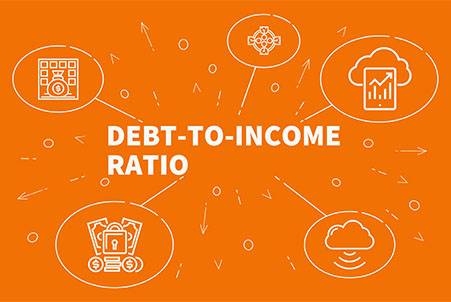Making smart financial decisions can be easier than you think. By understanding a few key concepts about debt, you can successfully manage your income, your budget, and your expectations.
What is DTI?
The debt-to-income (DTI) ratio is a percentage calculated by dividing monthly debt by monthly income.
To see what your DTI ratio is, add up your monthly total rent or housing payment plus other installment loan payments (such as student loans or auto loans), minimum payments to credit cards, and any child support or alimony. Then divide that by your monthly gross income. The DTI represents the percentage of your monthly income that is obligated toward total debt.
As an example, say that each month you owe $1000 in housing payments, $200 in credit card payments and $300 in student loans. Your monthly income before taxes is $5000. Dividing the debt payments ($1500) by the gross income ($5000) gives you a debt-to-income ratio of 30%. Visit our website to calculate an estimated monthly mortgage payment for an idea of how much mortgage you can afford.
Why does DTI matter?
Lenders use the DTI ratio as a way to predict whether a borrower has the ability to repay them. Different lenders have different DTI guidelines but a traditional rule of thumb was that you could qualify for a mortgage loan with a DTI ratio less than or equal to 36%.
Due to changes in underwriting, it’s possible for today’s borrowers to qualify for loans when their ratios are even greater than that old percentage. But don’t forget that there are other variables involved: your credit score and amount of money in the bank significantly affect the maximum DTI allowed.
Look at the bigger picture.
Just because you’re approved for a certain amount doesn’t mean you should spend it. When all is said and done, the best kind of home is the one you can afford.
Even a person with superior credit should not spend more than 43% of their gross income for total debt payments. DTI does not take into account the income needed for utilities, food, clothing, income taxes, Social Security taxes, savings, retirement investments, home repairs, medical bills, savings, etc. Your lender decides what you can borrow, but you decide what you can live with.
If you’re thinking about purchasing or refinancing a home, the mortgage loan professionals at Guardian Mortgage are here to help. Just call 800-331-4799 and you’ll talk to a real person who is ready to take care of you every step of the way. We’ve been serving generations of homebuyers for over 50 years.

